Papers by TUME F O N D Z E Y U F Keneth
The concept of theatre of the oppressed has been more and more visible and vibrant in Africa and ... more The concept of theatre of the oppressed has been more and more visible and vibrant in Africa and Cameroon as “socio-drama” for mobilisational, educational and collective action. This approach and process is a medium through which people raise community issues, get involved in an interactive process, discussing the issues as well as mobilising to get organised and take action on the issues (Ross Kidd and Martin Byram, 1983 in Eyoh 1987). In the People Theatre Practice as per the case studies under analyses, the facilitators only guided the masses to gain total control of the theatre making process, performance and post-performance discussions.

The paper examines how oral popular cultural performance uses historical facts and cultural life ... more The paper examines how oral popular cultural performance uses historical facts and cultural life patterns to recreate local knowledge for dissemination by aggregating genres such as music and song. The selected songs indicate how Nso’ history, genealogy and cultural hegemony has and continues to influence the vibrancy of contemporary oral popular cultural performances in local and urban settings in Nso’ land. This critique opens investigations into how Nso’ oral popular cultural performers are inspired by their history and cultural heritage to actually express and assert who they are. Yangzi’smusical art provides listeners with lyrics that are subject to poetic analysis to better understand how social concerns and value systems are addressed. Music takes its rise from human communities and therefore addresses itself to those communities.This art form is interdisciplinary, paying particular attention to the actual social settings from where it is created and for which it is sung. These issues are a superficial representation of the vast repertoire of interactions between music as an art form and the Nso’ genealogy and heritage.
Key Notions: Oral, Popular Cultural, Performance, Retracing, Genealogy, Hegemony
Drafts by TUME F O N D Z E Y U F Keneth

1-T h eA n g l o p h o n eP r o b l e m i nC a me r o o n : P a r t i c i p a t o r yT h e a t r ... more 1-T h eA n g l o p h o n eP r o b l e m i nC a me r o o n : P a r t i c i p a t o r yT h e a t r ea n dV i d e o C o n s t r u a l T U MEF O ND Z E Y U FK. k i l a g h a n s e n y u y @g ma i l. c o m/ t u me. k e n n e t h @u n i b a-e d u. c m + 2 3 76 9 6 3 2 9 0 7 4) D e p a r t me n t o f P e r f o r mi n ga n dV i s u a l A r t s , U n i v e r s i t yo f B a me n d a(U B a) C a me r o o n A b s t r a c t T h i sc h a p t e r a n a l y s e st wov i d e o st h a t e ma n a t e df r o m c o mmu n i t y-b a s e dt h e a t r ewo r k s h o pp e r f o r ma n c e si nC a me r o o ni n1 9 8 9a n d 2 0 0 4. S i g n i f i c a n ti sh o w p r a c t i t i o n e r su s e dp a r t i c i p a t o r yr e s e a r A l t h o u g h a n a r me d c o n f l i c ti st e r r i f y i n g t h eNo r t h We s ta n d S o u t h We s tR e g i o n s ,t h e C a me r o o nG o v e r n me n t o ni t sp a r t h a sb e e nma k i n gamu l t i t u d eo f c o n c e s s i o n st ome e t u p wi t ht h ed e ma n d st h a t s t a r t e da sas t r i k ea c t i o nb yt e a c h e r sa n dl a wy e r sa n dwh i c hn o wc a n b eo u t-r i g h t l ys e e na st h eA n g l o p h o n eMi n o r i t yS e c e s s i o nWa r .
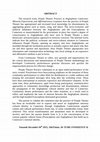
The research work, People Theatre Practice in Anglophone Cameroon: Minority Expressivity and Affi... more The research work, People Theatre Practice in Anglophone Cameroon: Minority Expressivity and Affirmativeness examines how the practice of People Theatre has appropriated and recreated local knowledge for dissemination by aggregating genres such as music, song, and dance. The socioeconomic and political imbalance between the Anglophones and the Francophones in Cameroon as masterminded by the government in place has raised a degree of consciousness in Anglophones who have seen in People Theatre a more democratic and participatory approach to minority concerns. The selected works indicate how the political, economic and socio-cultural situation in Cameroon influences People Theatre, opening an enquiry into how Anglophones are moulded through the facilitation process to actually express and assert who they are and their opinion and aspirations. How People Theatre appropriates new information and communication technology into local settings as an expressive and affirmative medium is put in focus. From Community Theatre to video, new grounds and opportunities for the critical discussions and interpretations of People Theatre methodology are developed. Community performances generate discourse and quicken the empowerment process for effective change. People Theatre Practice culminates in an open ended performance of the story created. Practitioners have been putting emphases on the mutation of these community performances to video films for distribution to a wider audience and keeping the articulated messages alive long after the workshop event. These have been instrumental as minority expressive and affirmative channels. At the same time, these performances, apart from being participatory communicative approaches to community knowledge production and dissemination, enhance the propagation of the Anglophone cultural identity and that of Cameroon. Community theatre performance and the video mutation, as a result, tend to reflect and emphasise the state of mistrust between the Anglophone minority and the high-handed Francophone dominated government. The pursuit to validate the contention that the practice of People Theatre has been an invaluable tool to express and assert an Anglophone minority cultural identity in Cameroon through Anglophone Cameroonian popular culture and cultural performance forms has, to some considerable extent, been achieved. This social transformation and attainment must be developed to involve, and have the masses benefit from it. It is the concretisation of the various popular cultural forms (Francophone and Anglophone) that build up to Cameroon's national identity.

This essay analyses a performance that emanated from community theatre workshop in Cameroon in 19... more This essay analyses a performance that emanated from community theatre workshop in Cameroon in 1998. Well-tailored, the process and the performance addressed issues of ethnicity, politics, economy, socio-cultural, democracy and governance, to articulate and expose the Anglophone-Anglophone dichotomy in Cameroon. Significant is how practitioners used participatory research for communication and social change to raise consciousness in the masses. Participatory research and communication for social change resulted in live performance and video–Kam No Go. The process underlines inconsistencies that characterise Anglophone-Anglophone dichotomy. Through the active participation of the populace community theatre was used as a medium to generate messages for social transformation. Based on Paulo Freire's postulations in Pedagogy of the Oppressed which Augusto Boal enhanced in his Theatre of the Oppressed, focus is on how community-made theatre reinforces community initiatives instilling critical thinking in the populace. The notion of democracy and governance in Cameroon has been articulated severally, uncovering another very serious concern, the Anglophone-Anglophone dichotomy. The many socio-cultural, economic and political influences that form learning social roles through personal and shared communal experiences underlie this dichotomy. This indicates that in as much as the Anglophones constitute a minority they do not often always have a common ground as to what their status is in Cameroon. Although through community made and community oriented theatre they express and assert who they are and their opinions and aspirations about their socio-cultural and political situation. This form of minority expressivity and affirmativeness is predominant and determinant in Anglophone Cameroonian performing arts and can foster the articulation, negotiation and mediation of Anglophone cultural identity in Cameroon. It could be a way to community
The socio-economic and political imbalance between the Anglophones and the Francophones in Camero... more The socio-economic and political imbalance between the Anglophones and the Francophones in Cameroon as masterminded by the successive regimes from Amadou Ahidjo to Paul Biya has raised a degree of consciousness in Anglophones who think the situation needs some redress. The coming into being of Cameroon and its geo-political, socio-cultural and economic situation of this country is the focus of this reflection.
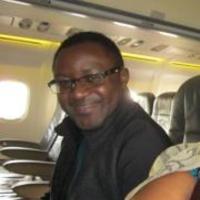
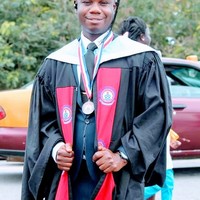
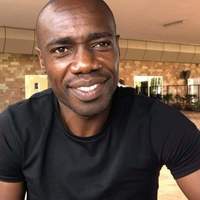

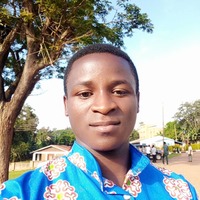


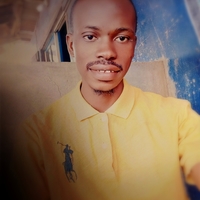


Uploads
Papers by TUME F O N D Z E Y U F Keneth
Key Notions: Oral, Popular Cultural, Performance, Retracing, Genealogy, Hegemony
Drafts by TUME F O N D Z E Y U F Keneth
Key Notions: Oral, Popular Cultural, Performance, Retracing, Genealogy, Hegemony